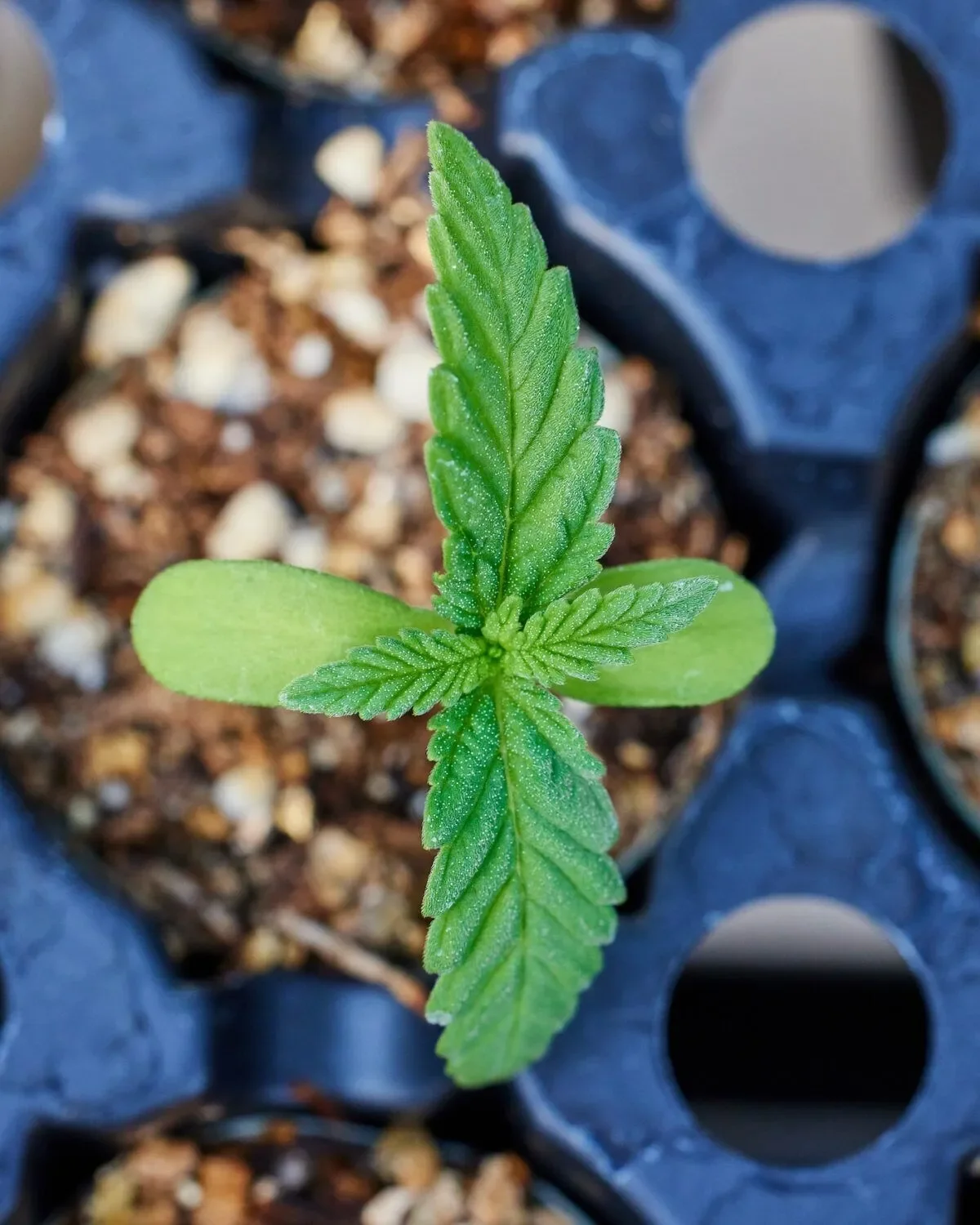A sofresh farms favorite
Durban Poison has long been a favorite in the Pacific Northwest and not surprisingly, is sofresh farms' most popular strain. Durban Poison suits itself well with the active NW crowd yet also appeals to those with a creative side. With its unique terpene profile, nothing smells or tastes quite like it. Open a jar of Durban Poison and the room fills with the scent of spicy anise mixed with pine trees and citrus. Everyone immediately knows when Durban’s in the house.
Land race genetics
Durban Poison is a land-race strain with pure African genetics. It comes from an area in South Africa near the port of Durban. The area has a humid, subtropical climate with hot summers and warm, dry winters. Since Durban, Africa, is physically far from many other well-known cannabis growing areas the plant has evolved into a unique strain all its own. Durban Poison is unlike the hash plants of Afghanistan, Sativas of South American or the Asian strains we all know so well. This exclusive breeding has led to an increase in rare beneficial cannabinoids such as THCV.
What is THCV?
Most cannabis consumers are familiar with the effects of THC and CBD cannabinoids. Durban Poison has been known to test high in THC but it also contains a unique cannabinoid called THCV. As the name suggests, it’s much like THC but with other pronounced effects. What are the benefits of THCV?
- THCV is known to be an appetite suppressant – That’s right, instead of giving you the “munchies” Durban Poison has been shown to reduce your appetite. This is great if you’re on a diet.
- THCV may help reduce anxiety attacks – People experiencing panic attacks or PTSD may find relief in the effects of THCV without reducing normal emotions.
- THCV has been shown to help diabetes – THCV may help the bodies ability to reduce insulin resistance and regulate blood sugar levels.
- THCV may help with Alzheimer’s disease - Brain lesions, motor control and tremors appear to improve.
- THCV may increase bone growth – THCV has been shown to promote growth of new bone cells.
Terpenes
Terpenes are a group of essential oils that gives each cannabis strain their unique characteristics and aroma. Durban Poison has always tested high for terpenes and its unique profile is like no other. What are the main terpenes that makes Durban Poison so special? Glad you asked!
Terpinolene – Think piney, herbal, floral with a hint of citrus. It’s used in many of the lotions, perfumes and soaps you find on your local grocery shelf. Terpinolene can be found in pine trees, lilacs, apples and cumin.
Potential medical benefits include: anticancer, antibacterial, antioxidant, sedative, antifungal
Myrcene – Found in many fruits and other fragrant plants such as hops, basil, bay tree, parsley, mango lemongrass and thyme. It’s thought to help produce a sedative, relaxed effect on the user.
Potential medical benefits include: anti-inflammatory, antibiotic, sedative, pain-relief (Analgesic)
Ocimene – known for its sweet fruity, herbal and woodsy scent. Ocimene is used in perfumes and occurs in other plants like pepper, mangoes, orchids and mint.
Potential medical benefits include: antibacterial, antiseptic, antiviral, anti-inflammatory, antifungal, decongestant
Pinene – As you can imagine, pinene smells a lot like a pine trees. You can also find it in basil, parsley, rosemary and even orange peels.
Potential medical benefits include: Pinene has been known to improve lung function (Bronchodilator), short-term memory loss, anti-inflammatory and alertness.
Limonene – This is the primary terpene found in citrus fruit. Everyone is familiar with the intense citrus smell of lemons, limes and grapefruits.
Potential medical benefits include: stress relief, antifungal, antibacterial, heartburn and mood enhancement. When you’ve had a hard day and need to relax, look for the strains that smell like lemon/lime.
Caryophyllene – Think spicy! Most of our favorite spices are filled with this terpene. Pepper, cinnamon, basil, oregano, rosemary and cloves are just a few.
Potential medical benefits include: anti-inflammatory, pain-relief (Analgesic), anti-depressant, anti-cancer and anti-anxiety.
There is only one Durban Poison! If you find yourself searching for a great “day smoke” you must give Durban Poison a try. Nothing is better for a hike in the woods or hanging out with that special someone. sofresh farms grows only the best cut, using 100% organic methods, for the best tasting Durban Poison on the market. Clean Green certified guarantees you’re making a safe choice and Phylos Galaxy certification assures you’re getting what you paid for. Next time you visit your local dispensary be sure to ask for sofresh farms Durban Poison!
Guest blog written by Fred Gunnerson, sofresh farms member.





